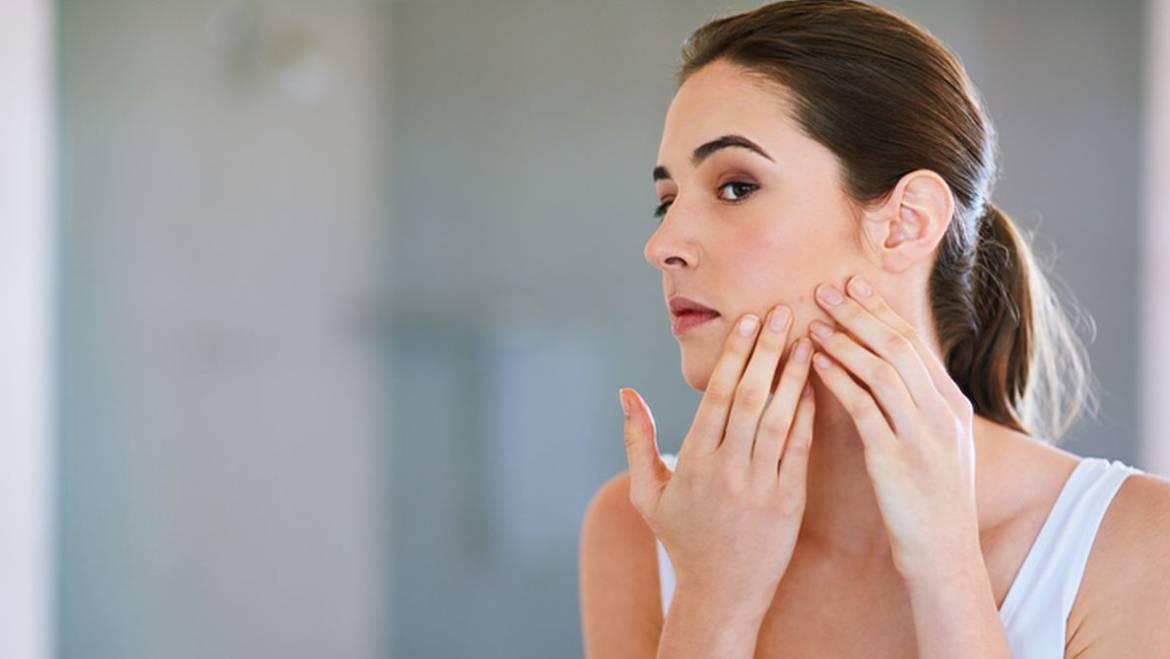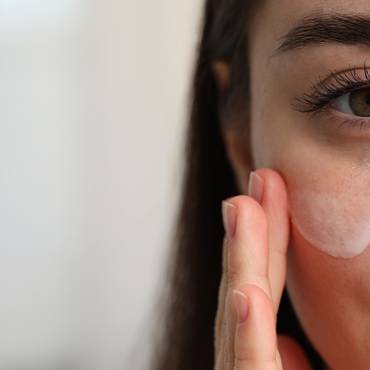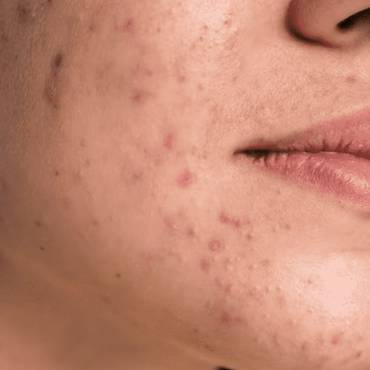According to research, acne vulgaris affects 50 million people living in the United States. It is thought to be associated with residual scarring and psychological problems, especially poor self-image, anxiety, and depression. These various psychological effects impact a patient’s quality of life. Determining the best acne therapy for your skin is quite a difficult task. Acne treatments include prescription medications (topical and oral products) and over-the-counter (OTC) skincare products. Acne treatment reduces or clear skin lesions and prevents scarring and psychological disturbances. What products do you use to treat acne? Find out the ingredients to look for and use for the best results.
First-Line Treatment Options
While the first recommendation is usually a dermatologist who is an expert in treating skin issues, some mild acne types can be treated with simple OTC formulations. For moderate to severe acne, prescription-strength acne products and the expert advice of dermatology may be necessary.
What products do you use to treat acne? The choice of topical products is based on the patient’s age, acne sites, and severity. There are different types of acne, and treatment varies from person to person. A skincare expert will closely monitor your condition to see the different lesions that appear on your skin. Many topical preparations are available to treat mild to moderate acne or periodic breakouts. First-line treatment for mild acne (non-inflammatory) includes a topical retinoid or a combination of topical formulations consisting of benzoyl peroxide and an oral antibiotic, retinoid, or both. You can buy acne products online to get rid of acne. The Food and Drug Administration (FDA) has warned that some over-the-counter formulations for acne can cause serious reactions, including swelling of the face/lips/tongue/throat, leading to breathing issues. This type of allergic reaction is quite rare, but make sure you don’t get confused with the itchiness, redness, or irritation that may commonly occur when you apply such products. Also, make sure you buy acne products online only after getting a prescription from your dermatologist. Moderate to severe acne requires topical or prescriptions from a dermatologist to effectively treat. Before you decide, learn how these acne products work and what ingredients to look for. This helps to develop an appropriate skin care regimen to treat and prevent acne.

Main Ingredients in Acne Products
Anti-acne formulations work in different ways, depending on their active ingredients. Some work by killing the acne-causing bacteria; others remove excess oil from the skin, speed up the growth of new skin cells, and remove dead cells from the skin’s surface. Some acne formulations perform the dual duty to reduce acne. You can buy acne products online at the best price. Here are effective acne ingredients and how they work to treat acne.
Tretinoin: Tretinoin is a valuable medicine in treating mild, moderate, and severe acne that can be used topically. It is a vitamin A derivative in the retinoids class of medications. Tretinoin is also the only topical medication that has been proven to improve the appearance of wrinkles. It works by increasing the production and shedding of skin cells, which forces out the dead skin, bacterial, or oil in the skin pore. The topical agent prevents the formation of new comedones. Tretinoin comes as a cream or gel usually used daily at bedtime. Follow the directions on your prescription carefully and ask your dermatologist if you do not understand any part of the treatment regimen. Tretinoin formulations control acne but do not cure it. You may experience worsening acne during the initial days of the treatment. But continue to use; the acne sore should disappear after a few days of using the medicine. Tretinoin is equally effective in reducing wrinkles, skin discolouration and rough skin. It may take up to 3 to 6 months before you notice improvement. If you stop using the topical medicine, the improvement may gradually disappear.
Clindamycin – Topical Clindamycin is an antibiotic that treats inflammatory acne. Regular application reduces the number of bacteria that cause acne. Clindamycin also induces anti0-inflammatory effects, making pimples less red and swollen. If used as directed by the dermatologist, one will see improvement with 4 to 6 weeks after initiating treatment. Topical Clindamycin treats anything from stubborn-but-mild inflamed pimples to severe acne. Just like oral antibiotics, topical antibiotics, Clindamycin inhibits the growth of acne-causing bacteria. When applied topically, the cream doesn’t keep pore blockages from forming, thus preventing acne. However, topical antibiotics work slow, so they are often prescribed with other acne treatments to boost their effectiveness. Your dermatologist will likely prescribe other acne medicines like benzoyl peroxide or tretinoin to use along with topical Clindamycin. Using two acne medicines will help you achieve faster results.
Benzoyl Peroxide – Benzoyl peroxide is a well-known anti-acne ingredient. Available in gels and cleansers, this ingredient comes in different concentrations for mild to moderate breakouts. Benzoyl peroxide treats and prevents acne by killing bacteria responsible for causing acne and helping the skin pores shed dead skin cells and excess oil. It is particularly effective in treating inflammatory acne, which appears as red bumps. Benzoyl peroxide treats cystic acne, the most serious form of acne, combined with other topical prescription medicines. If you are dealing with this type of acne, consult your dermatologist for the best treatment options. Benzoyl peroxide comes in the form of many anti-acne products. Buy acne products online to get huge discounts. It’s important to select the appropriate solution for your skincare. It is recommended to consult a dermatologist as you may need a wash for your body or a gel for your face. Another key is to choose the right concentration, which usually depends on your skin.
Conclusion
Acne is the most common skin condition among Americans, yet finding an effective treatment can be difficult. Experts agree skincare products containing benzoyl peroxide, tretinoin, and Clindamycin may serve as a stepping stone to improving mild, moderate to severe acne. However, it is always recommended to use anti-acne agents under a dermatologist’s supervision.



